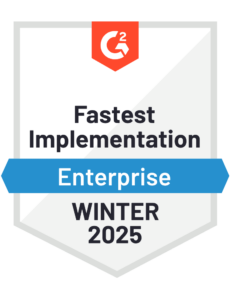Spreadsheets vs. Finance Process Automation
eBook
Share
Download the eBook
Spreadsheets have been the backbone of finance and accounting for decades, even though technology has changed dramatically along the way. But now, the role of accountants in the organization has transitioned from “bean counters” and budget planners to more future-oriented, strategic partners. Outdated tools such as spreadsheets, and the manual processes they promote, have to evolve and give way to better tools if accountants are to keep pace with their ever-changing responsibilities.
This eBook explores 5 significant problems using spreadsheets as the primary close tool creates for your organization’s financial processes.
5 Problems Using Spreadsheets
1. No Real-Time Process Visibility
Spreadsheets are not real-time and collaborative nor do they offer the ability to monitor the whole transaction matching process and manage it in one place. The risk becomes a lack of confidence and trust in the numbers, inability to identify process inefficiencies and eliminate bottlenecks, higher cost, and time-consuming audits.
2. Compromised Data Integrity
Studies have shown that as many as 88% of spreadsheets are materially incorrect due to faulty macros, complacency and/or overconfidence in spreadsheets that have been repurposed or recycled. The risk is far-reaching compound errors due to innate incorrect data.
3. Weak Compliance Framework
Spreadsheets lack key functionality for managing compliance initiatives. For global companies, the problem becomes hugely complex with a lack of standardization and traceability. The risks include increased audit fees and the associated compliance costs.
4. Decreased Productivity
The amount of time spent emailing, comparing versions, meeting, printing, and re-entering data mean that any single spreadsheet is now ripe for errors and teams are subject to unnecessary peaks in activity to support the close workload.
5. Lack of Organizational Scalability
Spreadsheets cannot efficiently handle the growth of an organization, whether organic or through M&A activity, due to limitations such as one account per tab. The risk increases as the number of spreadsheets grow and lead to a decrease in the accuracy of the resulting financial reporting.
Discover how your organization can leverage technology to modernize your close and avoid the pitfalls of outdated, manual processes.






